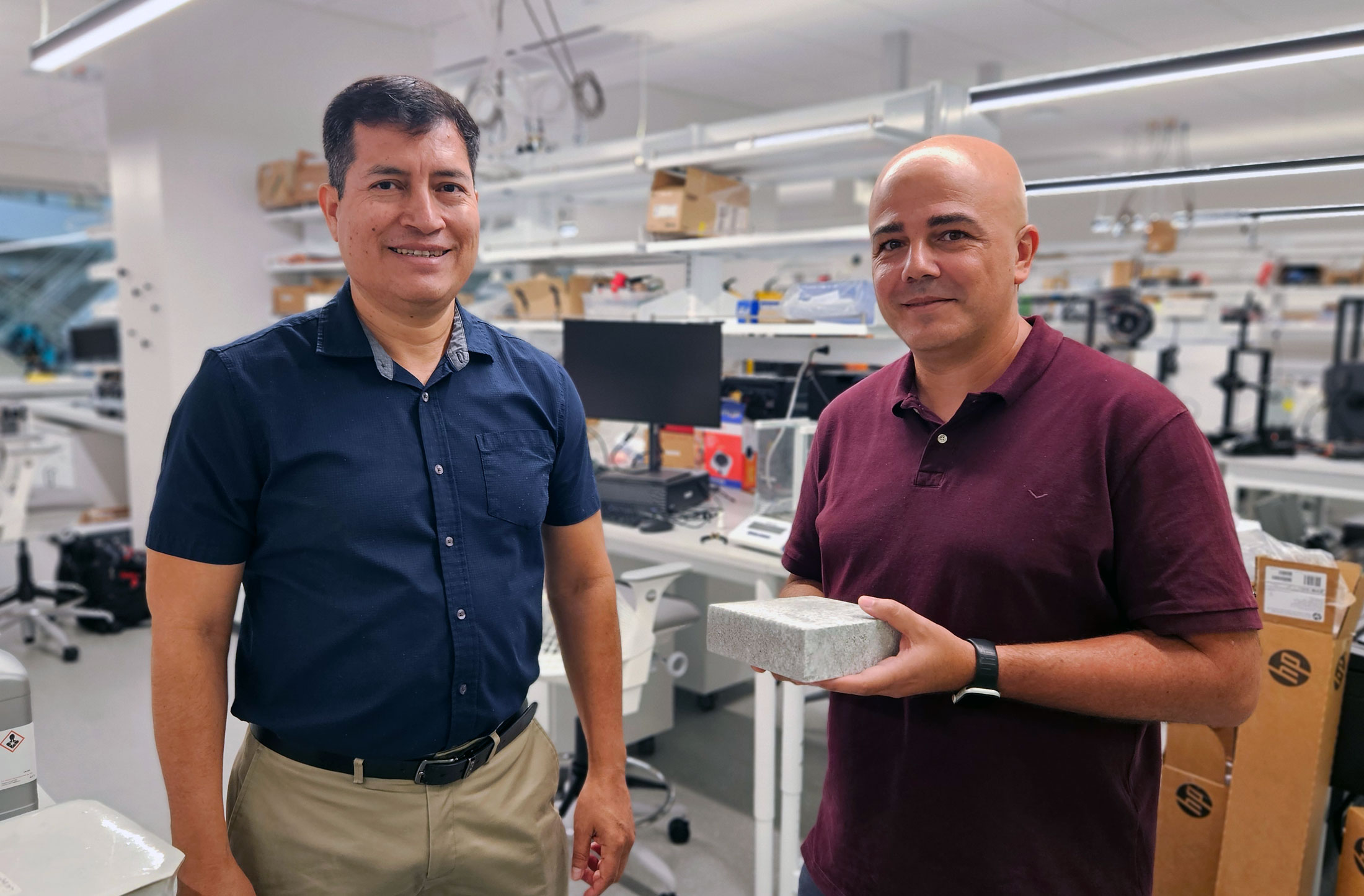
Dr. Gerardo Carbajal (left), associate professor of mechanical engineering at Florida Polytechnic University, and Dr. Antonio Soria, professor at the University Carlos III of Madrid in Spain, show the novel heat-absorbent aluminum foam block they have created to help batteries maintain a cooler operating temperature and achieve a longer life. Soria is working at Florida Poly as a Fulbright Scholar.
An international research partnership at Florida Polytechnic University is developing new technology to improve the performance of batteries that will power the machinery that keeps the world running.
Dr. Gerardo Carbajal, an associate professor of mechanical engineering at Florida Poly, is leading two energy-focused projects in collaboration with Dr. Antonio Soria, a professor at the University Carlos III of Madrid in Spain. Soria is working at Florida Poly as a Fulbright Scholar during the fall 2024 semester to contribute his specialized knowledge to the research.
“Dr. Soria’s expertise in the field of heat transfer, particularly in the area of energy conversion, provides valuable strengths to our research work,” Carbajal said.
The first project he and Soria are working on seeks to create novel ways to keep batteries cool, allowing them to work at an ideal capacity for a longer time.
“If you are working with batteries, you’re producing a lot of heat, and if you don’t remove the heat, you can damage the battery,” Soria said.
Carbajal said passive cooling is critical to making new and existing battery technologies more efficient and accessible. This is why the two researchers have focused on creating a porous, heat-absorbent battery casing using a specially produced aluminum foam.
“This new composite material will absorb the energy during the loading process and then it will dissipate,” Carbajal said. “All batteries generate heat, and their performance will decrease if the temperature increases, so we need to create new ways to cool them passively.”
Soria said when successful, the technique can be used on batteries of many sizes in a wide range of applications.
The second project the researchers are working on combines Soria’s work on the thermal storage of energy for concentrating solar power with Carbajal’s interest in water desalination. They are analyzing data Soria collected at his Spanish lab to compare different systems.
Soria will return to Spain at the end of November, but the research collaboration is expected to continue long into the future.
Contact:
Lydia Guzmán
Director of Communications
863-874-8557